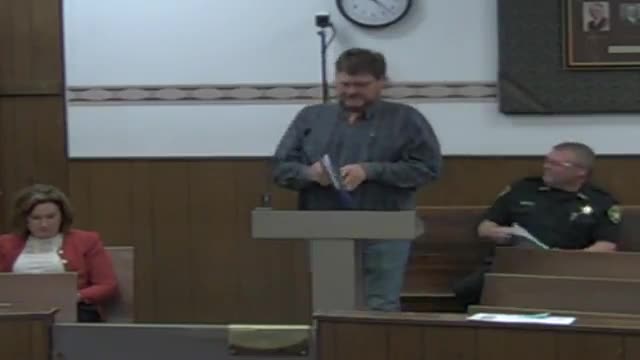Highway superintendent warns of multi‑year bridge delays, proposes secondary‑road plan and equipment purchase
Get AI-powered insights, summaries, and transcripts
Subscribe
Summary
County Highway Superintendent Tony March briefed commissioners on rural infrastructure funds, bridge projects delayed by historical/environmental reviews, plans to classify low‑maintenance roads and a trial of a blade attachment to cut washboards that may reduce passes and equipment wear.
Tony March, Fall River County highway superintendent, told commissioners the county holds rural access infrastructure funds that are intended primarily for townships and for culverts and structures. He said he has contacted township officials but has not yet finalized project lists.
March reported a long delay—about five years—in moving a bridge and access road project because the U.S. bureau responsible for the project is awaiting historical and environmental clearances. “Five years. Five years we’ve been working on that,” he said, describing how the federal review has held up work and forced consideration of detours.
March described on‑going road maintenance efforts, the use of new centerline gravel to lock in surfaces, and frequent heavy truck traffic on secondary roads that contributes to deep washboarding. To address rutted and washboarded surfaces, highway staff are testing a front‑plow attachment with spike‑type teeth; March said the unit costs about $7,500 and appears to reduce passes and wear on blades.
He also said the county will begin classifying secondary roads as low‑maintenance or no‑maintenance and that the commission will hold a private‑road hearing on Feb. 6 at 9:30 a.m. to consider related changes. March urged continued outreach to townships so RIF funds can be programmed and spent on culverts, structures and secondary‑road needs.
Commissioners asked about temporary detours and the need to coordinate with state and federal agencies when projects involve irrigation districts, bureaus and historic‑resource reviews. March said he has contacted the relevant agencies and is following up but that some solutions may require building access roads or detours while reviews proceed.
